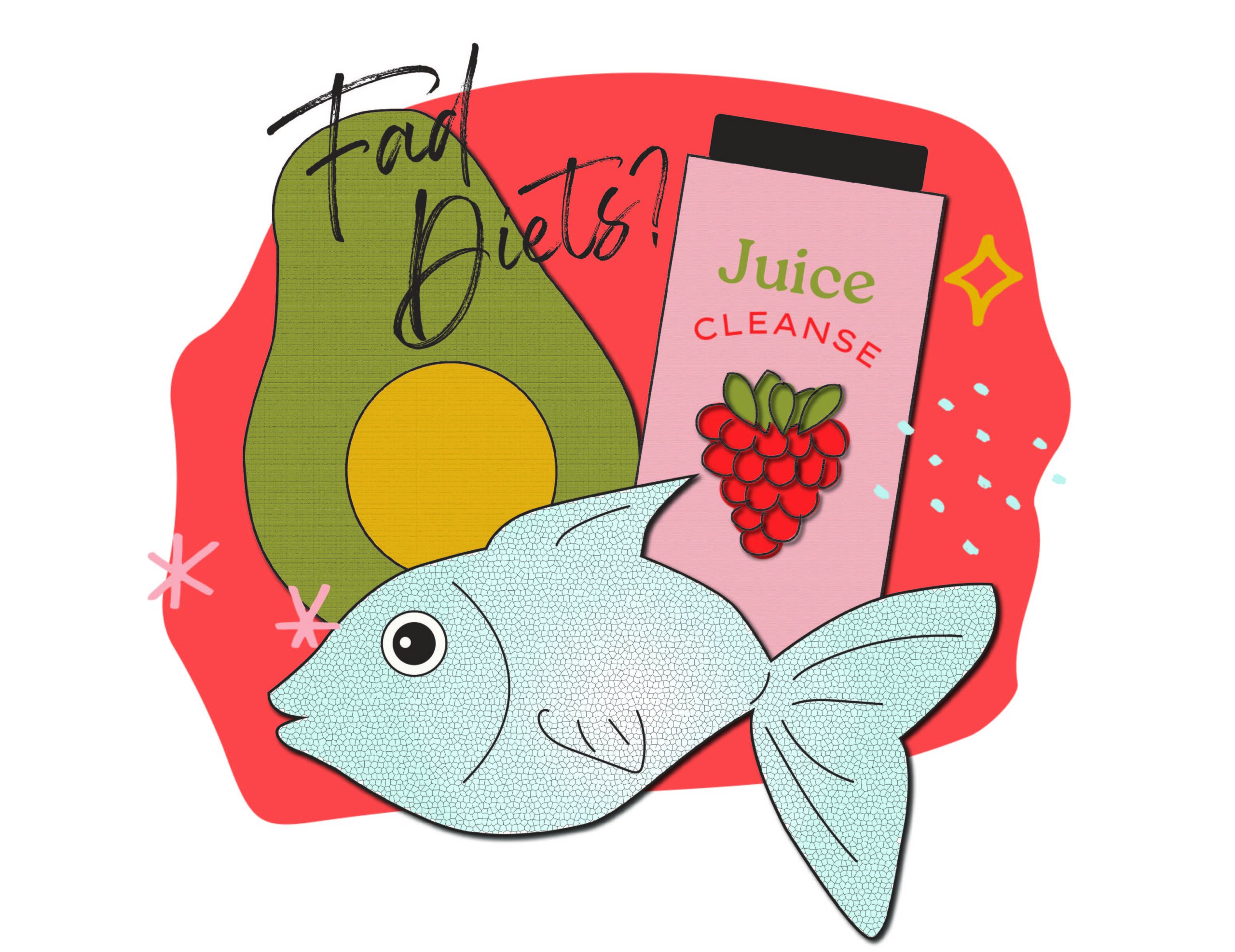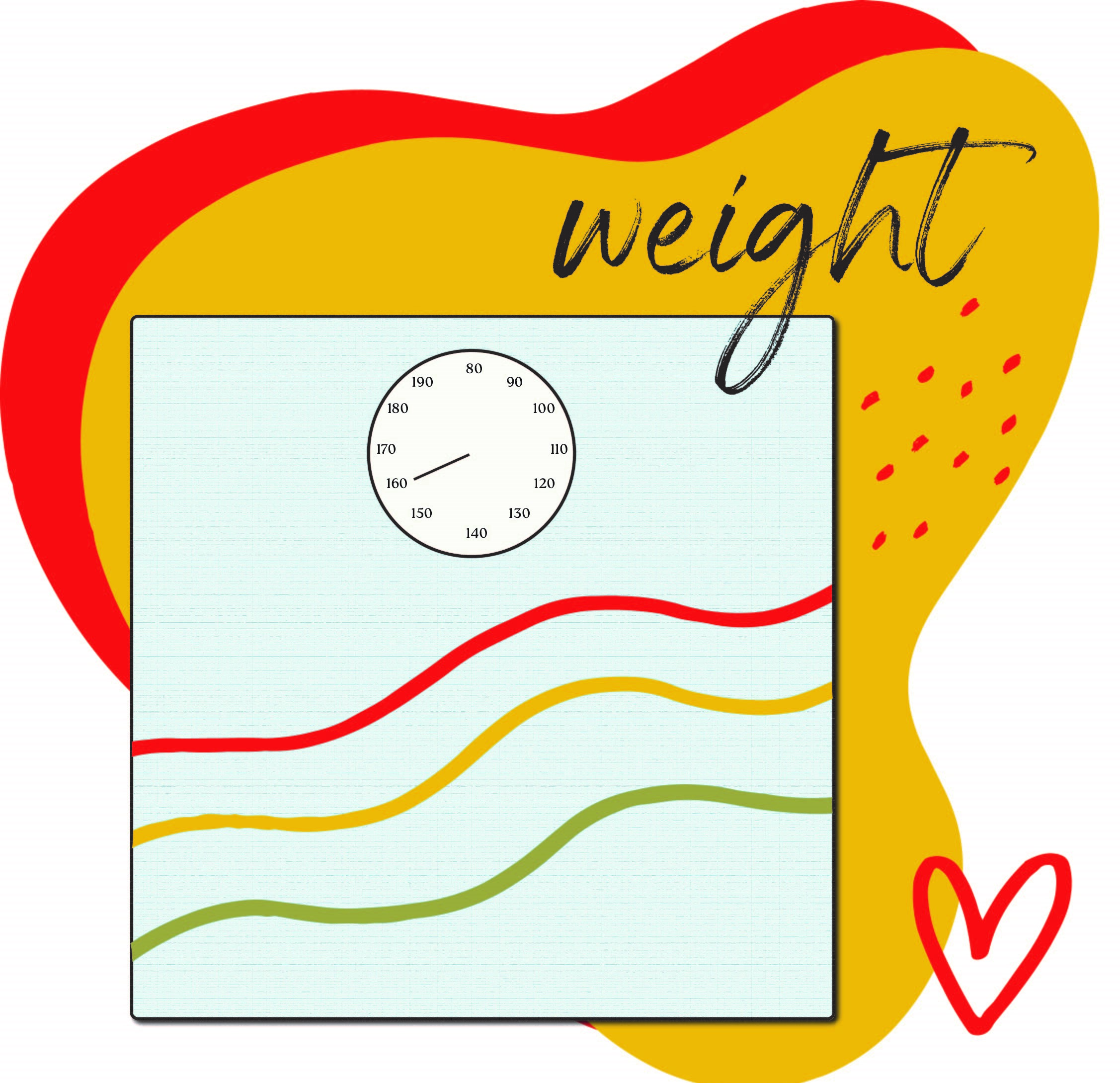Juice cleanse. Apple cider vinegar. Keto. Raw foods.
What are fad diets *really* doing to your health?
For many, losing weight and managing it can be debilitating, preventing our society from viewing food through a healthy lens. And unfortunately for women, it’s a day-to-day ordeal. Decades of cultural messages from media and magazines have been ingrained in how women “should” look, and not one generation is solely to blame.
Baby Boomers grew up glorifying stick-thin models, like Twiggy, and reading diet columns inside their Teen Vogues. Millennials were raised in a heightened period of supermodel-fixation, surrounded by Victoria’s Secret Fashion Show broadcasts and catalogs of ridiculously-fit models in sportwear. Fast forward to 2021, where Gen Z now wakes up to an endless scroll of carefully-curated beauty on their Instagram and TikTok feeds – “perfect” bodies modified with airbrushing apps and angles.
The bottom line is pretty clear: Betties have long been misled to believe super-thin equals “beautiful.” And just how has society trained us to achieve this look? Just follow another bizarre diet regimen. *eyeroll*
WHAT’S THE TRUTH?
Betties: the truth is, eating a healthy diet and engaging in moderate levels of physical activity are the well-substantiated keys to weight loss and, most importantly, achieving a healthier body.
Despite their popularity, fad diets almost always rely on unreasonable methods to lose weight, lumping them into a category we call “yo-yo” diets.
Yo-yo dieting, or weight cycling, is essentially an unhealthy pattern of losing weight and then regaining it, often regaining more weight than initially lost. This type of dieting is most common in the United States and has been linked to damaging long term effects including diabetes, metabolic disorders, obesity, and heart disease.

WHAT’S THE HARM?
Fad diets almost never work because, although they can quickly decrease your body weight, they do not necessarily help you lose fat. One of the largest subgroups of fad diets are “crash” diets, which entail strict restrictions on foods you can and can’t eat.
In the earliest stages of a crash diet, your body uses up all of its available carbohydrates (sugars), resulting in large losses of bodily water. As the body is continually depleted of nutrients and energy – generally between three and four days after beginning a diet – fat stores begin to be burned up (this is when we begin to use fat for energy rather than sugars or carbohydrates). At this stage, many begin to report feeling hungry, caused by an increase in the hormone leptin.
Quick Sidebar on leptin…
This hormone is produced by the boy’s fat cells and helps regulate hunger and energy use. When you begin to lose weight too quickly, leptin is released by the fat cells to increase hunger as a way of saving our fat. Storing fat was meant to be a survival method during times of famine, but in today’s society there is such an abundance of food we have oversupplied this function.
Back on the crash
At this point, it becomes difficult for our body’s to pull energy from fat reserves, so they have to find other sources, turning to our protein supply to help maintain energy, resulting in the loss of muscle mass. Fad diets often focus on restricting carbohydrate intake, not supplying them, so our bodies will rely on the other systems, resulting in muscle atrophy, ultimately changing the overall fat to muscle percentage.
These harmful processes ultimately result in the loss of muscle mass while simultaneously increasing bodily fat percentage. According to research, weight cycling typically results in greater weight gain, less physical activity, and increased binge eating. Contrary to popular belief, the most-effective method to achieving a healthy weight involves losing an estimated 1 to 2 pounds a week, averaging 4-8 pounds per month.
WHAT’S AT STAKE?
Unfortunately, numbers are on the rise for those struggling with weight cycling and/or disordered eating, who are also considered to be at a healthy weight.
In turn, adults and adolescents who believe they are overweight participate in harmful eating patterns and subsequently develop metabolic and cardiovascular conditions later in life due to the chronic stress resulting from their dramatic body weight fluctuations. Some doctors have gone so far as to say this is a public health issue or a body image epidemic.

WHAT CAN BE DONE?
Weight loss can be a mind game, with many unaware of the harmful impacts placed on their bodies while on the quest to attaining the “ideal body”.
Seek Professional Help
If you or someone you know is experiencing challenges with weight management or disordered eating, consulting a registered dietician is the best first step.
Betty’s virtual clinic will be launching July 7th as a one-stop shop for all questions body, mind, and women’s health. Our medical specialist can assess what your body really needs and create a wellness plan personalized to you.
Start A Food Journal
Unsure if your eating patterns are healthy? Start by tracking your meals. A food journal may be an effective way to reflect on what you’re eating, why you’re eating it, and how it makes you feel.
Food journals can be extremely revealing, with many Betties reporting to have never realized just how unhealthily they ate and never thought about why they ate the way they did until starting one.

Change Your Relationship
It’s impossible to change your weight or your body without changing how you think about food and how it relates to your emotions, decision-making and psychological well-being. When it comes to food interactions Betties often fall into these mental traps:
1. A crash diet has worked for me in the past, so I already know a fast way to lose weight.
2. Changing my entire diet is the only way to manage my weight.
Both these misconceptions are rooted in the same illusion: that fad diets are a weight-loss solution. But as we’ve seen, yo-yo dieting is a no-no for achieving and maintaining both a healthy body and mind.







Join the conversation